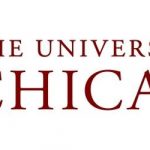Penn State Hazleton Associate Professor David Starling Working Toward a Photonic Quantum Computer of physics developing powerful computer technology
(PennStateUniversity) David Starling, associate professor of physics at Penn State Hazleton, has been working toward developing technologies that can lead to a photonic quantum computer.
Starling said it’s “abundantly clear” among physicists that there are two or three paths most likely to lead to quantum computers big enough and powerful enough to crunch big numbers and help solve complex problems. On a sabbatical during the fall 2019 semester, Starling was working on the path to a photonic quantum computer.
Instead of the traditional method of moving electrons through integrated circuits (silicon chips), Starling has been figuring out ways to shoot photons through the chips and to test for quantum computer-like activity.
In traditional computing, the “bit” (short for binary digit) is the basic unit of information — an electrical pulse typically representing “1” or “0.” Quantum computers use “qubits” (short for quantum bits), typically subatomic electrons or photons (light particles). Because qubits can represent numerous combinations of 1 and 0 at the same time, they can perform calculations that a conventional computer cannot.
Starling put it this way: “Because the current technology is going to be very difficult to scale [up], people are looking at other options for making computers that have more bits in them. But if you wanted to make a computer with thousands or millions of bits, the only way we know how to do that is with silicon chips. Can we use that same technology to make a quantum computer? We think we can. It’s [by] using photons instead of electrons, so we send photons through these chips. If we send photons through, then our photons can act like our bits, and that’s much more scalable.”
Starling’s research focuses on quantum physics, quantum mechanics, and quantum optics. He recently submitted a grant proposal to the National Science Foundation’s Quantum Leap Challenges Institutes program, an initiative to help overcome several major, fundamental challenges in quantum information science and engineering. If Starling receives a Quantum Leap grant, he said he will be able to better fund his lab and provide funding for post-doctorate, graduate, and undergraduate students



















